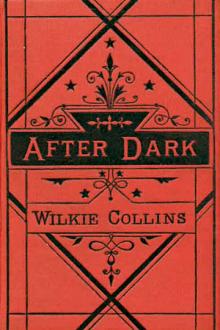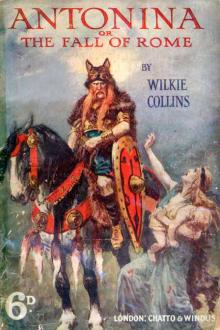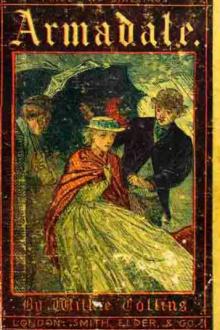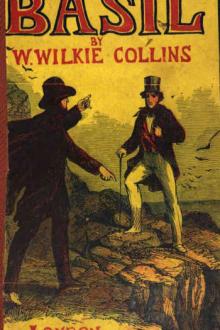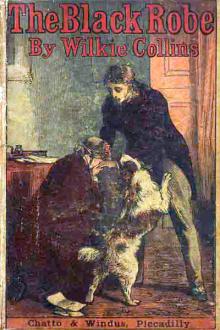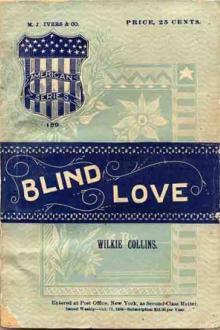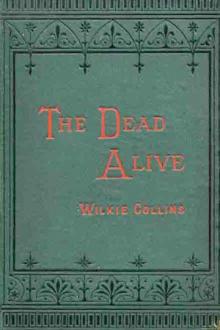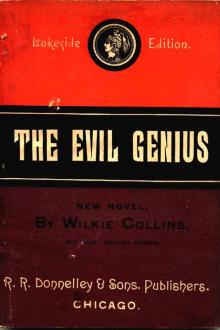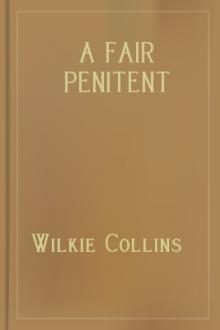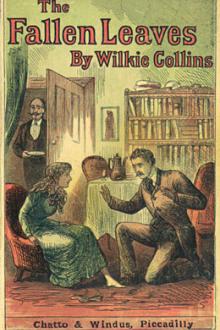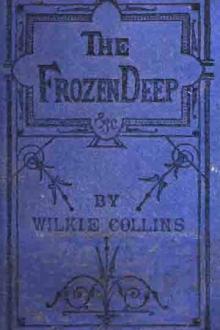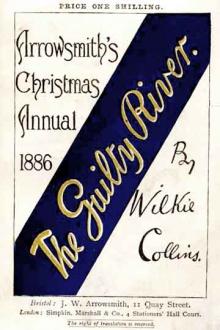The Woman in White
Book Excerpt
his hand, the golden Papa has a letter; and after he has made his excuse for disturbing us in our Infernal Region with the common mortal Business of the house, he addresses himself to the three young Misses, and begins, as you English begin everything in this blessed world that you have to say, with a great O. 'O, my dears,' says the mighty merchant, 'I have got here a letter from my friend, Mr.----'(the name has slipped out of my mind; but no matter; we shall come back to that; yes, yes--right-all-right). So the Papa says, 'I have got a letter from my friend, the Mister; and he wants a recommend from me, of a drawing-master, to go down to his house in the country.' My-soul-bless-my-soul! when I heard the golden Papa say those words, if I had been big enough to reach up to him, I should have put my arms round his neck, and pressed him to my bosom in a long and grateful hug! As it was, I only bounced upon my chair. My seat was on thorns, and my soul was on fire to speak but I held my tongue, and let Papa go...
Editor's choice
(view all)Popular books in Fiction and Literature, Gothic, Mystery/Detective, Romance, Thriller
Readers reviews
After 5 years of focusing on feminism in literature, the most prominant theme we've always been forced to focus on, I find this novel completely devoid of any inspiration - both as a piece of literature and as a feminist statement.
Collins introduces uninspired characters who lack, well, character! The protagonist, Walter Hartwright, fails to impress - honestly, he does nothing. The most impressive thing he does in the entire novel is run away from some thugs.
The narrative mostly concerns an inheritance, with explanations about the conditions of said inheritance dragging on for pages... and pages... and pages. It doesn't stop.
As a feminist piece of literature it completely cops out on its message by the end of the story... Collins seemingly wimps out and decides to settle for an ending that can't possibly be considered controversy - clearly the profit he made from the story meant more to him than creating support for women.
I find it both offensive and ignorant to be told that I'm 'uncultured' or 'stupid' for not enjoying this novel as I happen to be very cultured for a 17 year old.
As evidence for the tediousness of the story here is a section:
'It is impossible to refer intelligibly to this document without first entering into certain particulars in relation to the bride's pecuniary affairs. I will try to make my explanation briefly and plainly, and to keep it free from professional obscurities and technicalities. The matter is of the utmost importance. I warn all readers of these lines that Miss Fairlie's inheritance is a very serious part of Miss Fairlie's story, and that Mr. Gilmore's experience, in this particular, must be their experience also, if they wish to understand the narratives which are yet to come.
Miss Fairlie's expectations, then, were of a twofold kind, comprising her possible inheritance of real property, or land, when her uncle died, and her absolute inheritance of personal property, or money, when she came of age.
Let us take the land first.
In the time of Miss Fairlie's paternal grandfather (whom we will call Mr. Fairlie, the elder) the entailed succession to the Limmeridge estate stood thus--
Mr. Fairlie, the elder, died and left three sons, Philip, Frederick, and Arthur. As eldest son, Philip succeeded to the estate, If he died without leaving a son, the property went to the second brother, Frederick; and if Frederick died also without leaving a son, the property went to the third brother, Arthur.
As events turned out, Mr. Philip Fairlie died leaving an only daughter, the Laura of this story, and the estate, in consequence, went, in course of law, to the second brother, Frederick, a single man. The third brother, Arthur, had died many years before the decease of Philip, leaving a son and a daughter. The son, at the age of eighteen, was drowned at Oxford. His death left Laura, the daughter of Mr. Philip Fairlie, presumptive heiress to the estate, with every chance of succeeding to it, in the ordinary course of nature, on her uncle Frederick's death, if the said Frederick died without leaving male issue.
Except in the event, then, of Mr. Frederick Fairlie's marrying and leaving an heir (the two very last things in the world that he was likely to do), his niece, Laura, would have the property on his death, possessing, it must be remembered, nothing more than a life-interest in it. If she died single, or died childless, the estate would revert to her cousin, Magdalen, the daughter of Mr. Arthur Fairlie. If she married, with a proper settlement--or, in other words, with the settlement I meant to make for her--the income from the estate (a good three thousand a year) would, during her lifetime, be at her own disposal. If she died before her husband, he would naturally expect to be left in the enjoyment of the income, for HIS lifetime. If she had a son, that son would be the heir, to the exclusion of her cousin Magdalen. Thus, Sir Percival's prospects in marrying Miss Fairlie (so far as his wife's expectations from real property were concerned) promised him these two advantages, on Mr. Frederick Fairlie's death: First, the use of three thousand a year (by his wife's permission, while she lived, and in his own right, on her death, if he survived her); and, secondly, the inheritance of Limmeridge for his son, if he had one.'
- Upvote (0)
- Downvote (0)
I finished the book in no time, turning the pages, waiting to see and trying to anticipate what the next page will bring to Laura's, Marian's or Walter's adventure.
Characters are very well described, the scenes are described with all the necessary details (not too many when there's no need for them) and the plot is written in such way that makes you wonder what could happen next.
I would highly recommend this book.
A note on Kindle formatting: I have seen reviews of other Kindle freebies that were badly formatted and/or edited, but that was not the case with this book. Not only were there few (if any) typos, the formatting was quite readable. The one addition I would have liked is a linked table of contents. If you find a 99 cent version that boasts such a TOC, I'd recommend buying it instead of downloading it for free as I would have like to have looked back at different characters' accounts after reading them.
The story is told by the main characters, in succession, which gives an extra dimension to the book.
Not for nothing (about) six movies, two tv miniseries and a musical (by Andrew Lloyd Webber) were made after this book. Sadly the best one (with Jenny Seagrove and Diana Quick) is not available on dvd. The rest is too much abridged. So, if you want the whole story, read the book. And read it again!
This book is a classic page-turner that will keep you guessing. It is one of four exceptional novels that Collins wrote before his personal life, particularly a laudanum addiction, began to catch up with him. Anyone who enjoys a Victorian pot-boiler (not an oxymoron; they were known as "sensation fiction" novels) should read Wilkie's greatest: Woman in White, The Moonstone, Armadale, and No Name. You won't be sorry, unless you are like Leo.
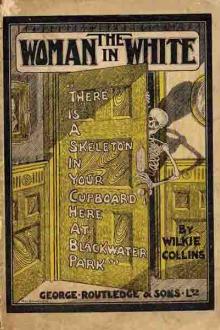
 Free Download
Free Download




















